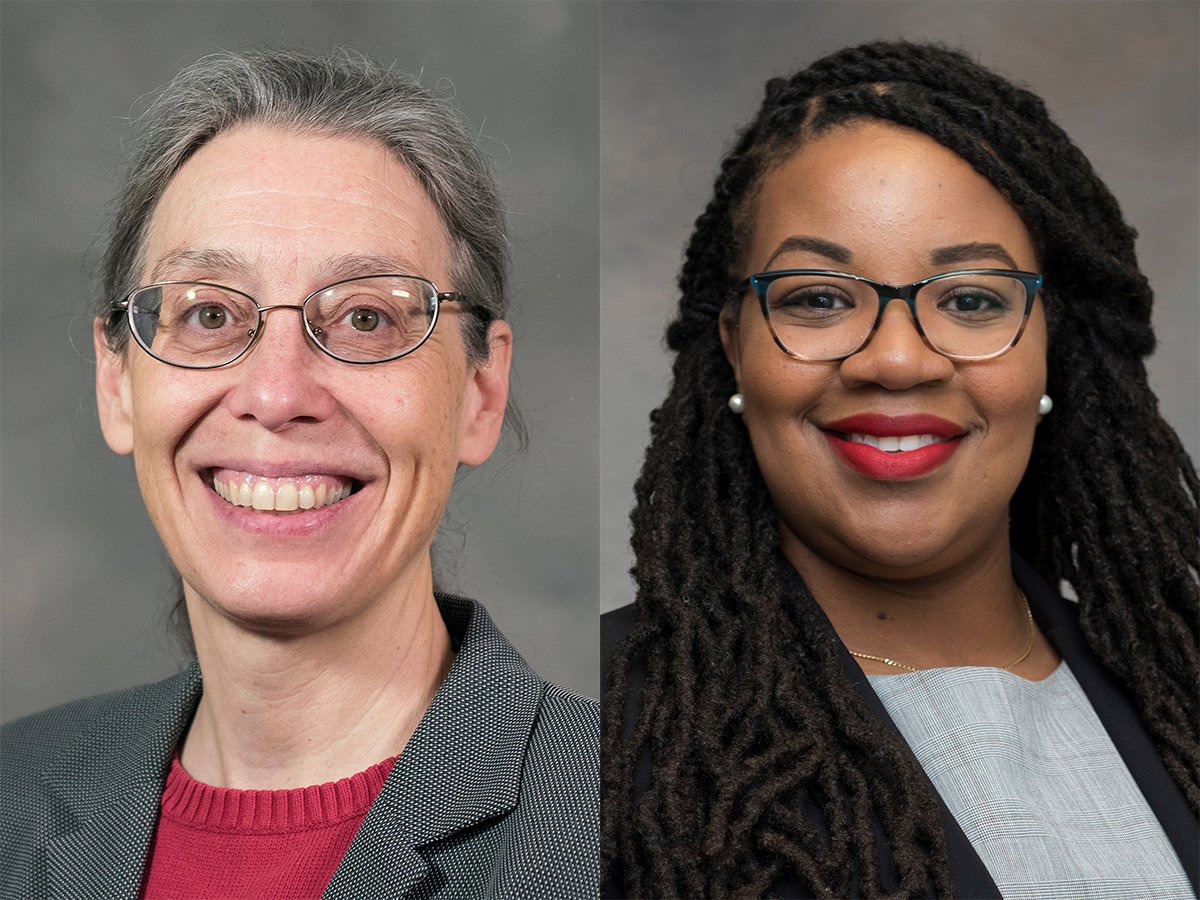Professor Sue Liemer and Assistant Professor Tiffany Atkins L'11 recently led or took part in panel discussions on teaching and mentoring in Washington, D.C., during the 2020 Annual Meeting of the Association of American Law Schools.
Two Elon Law faculty members helped shape conversations on teaching and mentoring when they participated in panel discussions this winter at the nation’s largest annual gathering of professors and administrators in American legal education.
Professor Sue Liemer and Assistant Professor Tiffany Atkins L’11 from Elon Law’s Legal Method & Communication Program traveled to Washington, D.C., over the first weekend of January for the 2020 Annual Meeting of the Association of American Law Schools.
For the conference, Liemer proposed, organized and moderated “The Multigenerational Teaching of Legal Writing,” a discussion group of which Atkins was a part. The group explored pedagogical issues that “bubble beneath the surface” for legal writing professors from different generations.
Ten legal writing professors from 10 different law schools joined the table for the discussion. About 50 other professors in the audience first observed and then joined in once the official discussants each spoke.
Atkins was later a discussant for “Time-Turning, Invisibility, and Other Magic Mentoring Tricks,” a panel discussion focused on mentoring. The discussion group addressed the challenges and joys of mentoring students. Some participants emphasized the impact on colleagues “who find themselves on the front lines of mentoring — legal writing faculty, professors who are persons of color, women, LGBT, etc. — and how institutions can be more supportive.”
The Association of American Law Schools is a nonprofit association of 179 member and 19 fee-paid law schools. Founded in 1900, its mission is “to uphold and advance excellence in legal education by promoting the core values of excellence in teaching and scholarship, academic freedom, and diversity, including diversity of backgrounds and viewpoints, while seeking to improve the legal profession, to foster justice, and to serve its many communities–local, national and international.”



